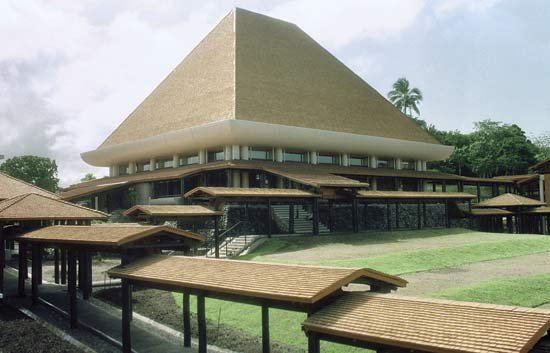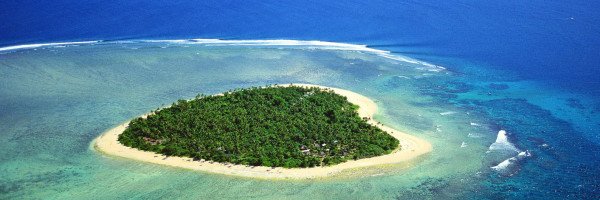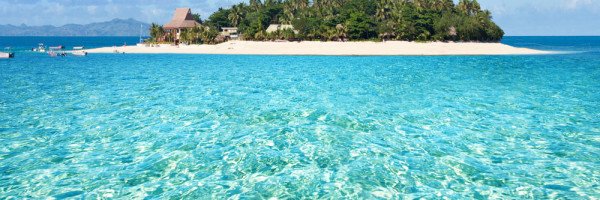Understanding Climate Change in Fiji
Fiji, an archipelago in the South Pacific, is not immune to the severe impacts of climate change. Rising sea levels, increasing temperatures, and more frequent extreme weather events pose significant threats to the country’s natural environment and its economy. The implications for eco-tourism are particularly concerning, as the beauty of Fiji’s landscapes and marine ecosystems directly influences its attractiveness as a travel destination for tourists, including visitors from New Zealand. With an average temperature increase of 1.5 degrees Celsius predicted by the end of the century, Fiji’s delicate ecosystems face heightened stress. Coral reefs, crucial for marine biodiversity and a major draw for eco-tourists, are increasingly subject to bleaching due to warmer waters. Furthermore, the increased frequency of cyclones can lead to significant damage to coastal areas, affecting not only the environment but also the tourism infrastructure. For Kiwis planning a visit, understanding these implications is vital when considering where to travel and how their choices affect local communities. For more insights into Fiji’s stunning landscapes and eco-tourism opportunities, visit Fiji Islands.The Economic Impact of Climate Change on Fiji’s Eco-Tourism
Fiji’s economy heavily relies on tourism, contributing significantly to its GDP and providing employment for thousands of locals. As climate change continues to affect the natural environment, the eco-tourism sector is poised to feel the pinch. The degradation of coral reefs and coastal areas may deter visitors, impacting local businesses and livelihoods. For New Zealanders, this reality presents an opportunity to engage in responsible travel practices that support sustainable tourism initiatives. Eco-tourism can thrive if travelers prioritize businesses that promote conservation and environmental stewardship. By choosing to stay in eco-friendly accommodations and participating in conservation-based activities, Kiwis can help mitigate the adverse effects of climate change on Fiji’s tourism sector. This also encourages local communities to adopt sustainable practices, ensuring that eco-tourism remains viable for future generations. For more information on eco-friendly travel options in Fiji, check out Fiji Islands.Coral Reefs and Marine Life: The Heart of Fiji’s Eco-Tourism
Fiji’s coral reefs are among the most diverse and vibrant ecosystems in the world, attracting eco-tourists for snorkeling, diving, and marine wildlife encounters. However, these reefs are under threat from climate change. Rising sea temperatures lead to coral bleaching, while ocean acidification affects coral growth and resilience. The loss of these reefs not only impacts marine life but also diminishes the allure of Fiji as a premier eco-tourism destination. Kiwis can play a role in preserving these vital ecosystems by supporting organizations that focus on marine conservation and rehabilitation. Participating in reef clean-up activities or educational programs can enhance their travel experience while contributing to the health of the reefs. Furthermore, opting for tours that follow sustainable practices can help ensure that these ecosystems remain vibrant and thriving. For more on Fiji’s marine life and conservation efforts, visit Fiji Islands.Adapting to Climate Change: Fiji’s Resilience Strategies
In response to the challenges posed by climate change, Fiji is implementing various resilience strategies aimed at protecting its ecosystems and communities. Initiatives include reforestation programs, coastal protection projects, and sustainable land use practices. These efforts not only help mitigate the impacts of climate change but also enhance Fiji’s appeal as an eco-tourism destination. New Zealanders can contribute to these resilience strategies by choosing to visit areas that actively promote sustainability and environmental conservation. Many eco-tourism operators engage in practices that align with Fiji’s climate adaptation goals, offering Kiwis the chance to learn about local efforts while enjoying the beauty of the islands. Engaging with local communities and supporting their initiatives fosters a deeper connection to Fiji’s culture and environment. For more details on sustainable tourism opportunities in Fiji, visit Fiji Islands.The Role of Sustainable Practices in Eco-Tourism
Sustainable practices are crucial for the future of eco-tourism in Fiji, particularly in light of climate change. This includes responsible waste management, conservation of natural resources, and supporting local economies. Kiwis can make a significant impact by choosing eco-friendly accommodations, participating in local tours, and purchasing locally made products. By aligning their travel choices with sustainable practices, New Zealanders can help ensure that Fiji’s eco-tourism sector thrives despite climate challenges. This not only benefits the environment but also enhances the overall travel experience by providing authentic cultural encounters and supporting community well-being. For more information on sustainable tourism initiatives in Fiji, visit Fiji Islands.Climate Change Awareness: Educating Travelers
Awareness of climate change is essential for travelers to make informed decisions about their impact on destinations like Fiji. Education around the environmental challenges facing Fiji can inspire Kiwis to adopt more sustainable travel habits. This includes understanding the importance of preserving natural habitats and supporting conservation efforts. Travelers can engage with local tour guides, attend workshops, or read up on climate change initiatives in Fiji to gain a deeper understanding of the issues at hand. By fostering a culture of awareness and responsibility, Kiwis can not only enjoy their travels but also contribute positively to the preservation of Fiji’s remarkable ecosystems. For resources on climate change and eco-tourism in Fiji, visit Fiji Islands.Future of Fiji’s Eco-Tourism: Opportunities and Challenges
The future of Fiji’s eco-tourism sector lies at the intersection of opportunity and challenge. While climate change poses significant threats, it also presents a chance for innovation in sustainable tourism practices. As the global demand for eco-friendly travel experiences grows, Fiji can position itself as a leader in the sector by promoting resilience and sustainability. New Zealanders can play a crucial role in this evolution by advocating for and supporting sustainable initiatives during their travels. By participating in eco-tourism activities that prioritize environmental conservation, Kiwis can help shape the future of Fiji’s tourism industry. Additionally, being informed travelers who understand the implications of climate change can foster a more sustainable tourism culture. For insights on Fiji’s eco-tourism potential, visit Fiji Islands.FAQs
What are the main impacts of climate change on Fiji’s eco-tourism?
Climate change poses several threats to Fiji’s eco-tourism, including rising sea levels, increased frequency of extreme weather events, and coral bleaching. These changes can damage vital ecosystems, reduce biodiversity, and ultimately deter tourists who seek the natural beauty and unique experiences that Fiji offers.
How does climate change affect the natural attractions in Fiji?
The natural attractions in Fiji, such as coral reefs, beaches, and rainforests, are highly sensitive to climate change. Warmer ocean temperatures lead to coral bleaching, while increased rainfall and storm intensity can erode coastlines and damage habitats. This degradation impacts the activities that eco-tourists typically enjoy, such as snorkeling, diving, and hiking.
What steps are being taken to combat climate change in Fiji?
Fiji has implemented various strategies to address climate change, including the promotion of sustainable tourism practices, reforestation projects, and the establishment of marine protected areas. Additionally, the Fijian government works with international organizations to enhance resilience against climate impacts, ensuring that eco-tourism can continue to thrive.
How can Kiwis contribute to sustainable tourism in Fiji?
Kiwis can contribute to sustainable tourism in Fiji by choosing eco-friendly accommodations, supporting local businesses, and engaging in responsible travel practices. By being mindful of their environmental footprint and respecting local cultures, New Zealanders can help preserve Fiji’s natural beauty for future generations of eco-tourists.
What eco-tourism activities are still viable in a changing climate?
Despite the challenges posed by climate change, several eco-tourism activities remain viable, such as hiking in protected forests, visiting sustainable farms, and participating in community-based tourism initiatives. These activities not only provide unique experiences but also support local communities and conservation efforts.
Are there specific eco-tourism destinations in Fiji that are more resilient to climate change?
Some eco-tourism destinations in Fiji, particularly those located inland or on higher ground, may be more resilient to the impacts of climate change. Areas that focus on sustainable practices and conservation, such as Taveuni or parts of Vanua Levu, are also better positioned to withstand environmental changes while still offering tourists rewarding experiences.
What role do tourists play in addressing climate change in Fiji?
Tourists play a crucial role in addressing climate change in Fiji by making conscious choices that prioritize sustainability. By opting for eco-friendly tours, minimizing waste, and advocating for local environmental initiatives, travelers can help mitigate the negative impacts of tourism on Fiji’s ecosystems and support the island nation’s efforts to combat climate change.
References
- Fiji Islands Official Tourism Website – Provides comprehensive information about Fiji’s tourism offerings, including eco-tourism initiatives and how they are impacted by climate change.
- Intergovernmental Panel on Climate Change (IPCC) – Offers detailed reports and assessments on climate change, including its effects on small island nations like Fiji.
- Climate Change and Tourism: Responding to Global Challenges – A report by the United Nations Environment Programme discussing the relationship between climate change and the tourism industry, particularly relevant to eco-tourism.
- World Bank – Climate Change Overview – Provides insights into how climate change affects developing countries, including Fiji, with implications for tourism and local economies.
- Climate Change Impacts on Tourism in Fiji – A research article analyzing the specific impacts of climate change on Fiji’s tourism sector, with a focus on eco-tourism practices.







